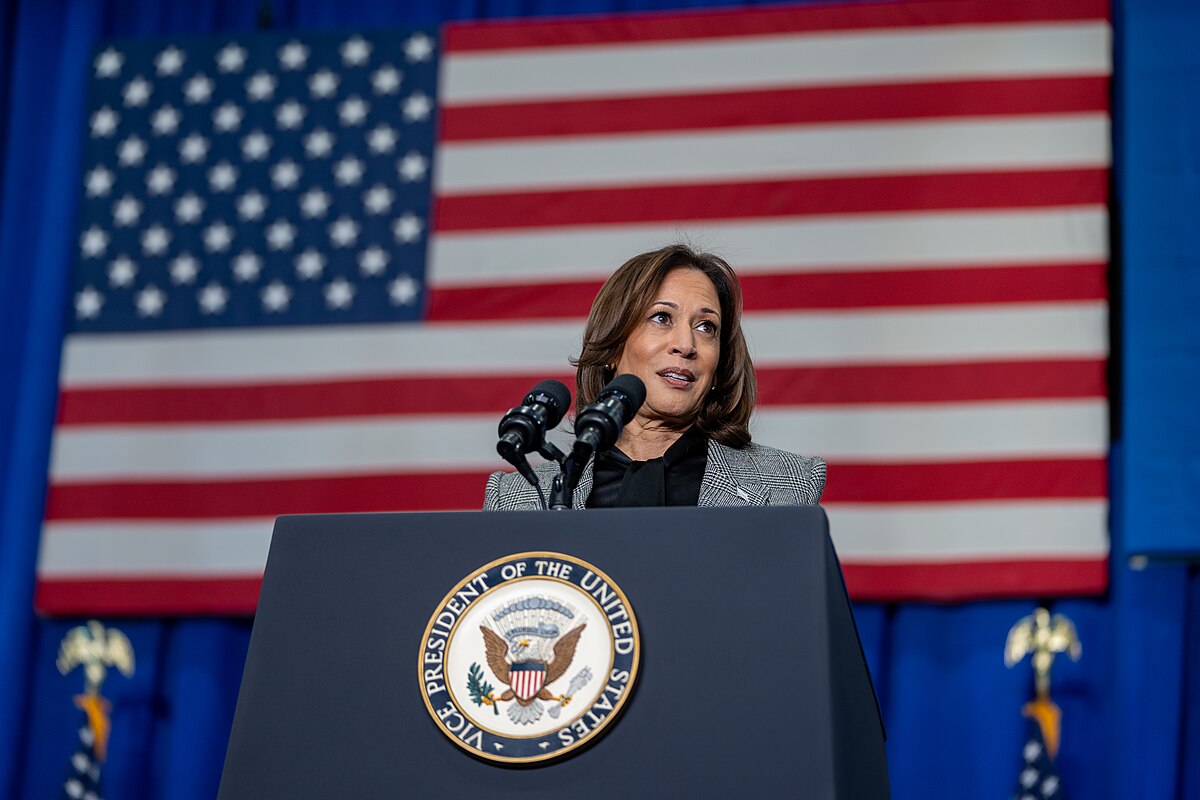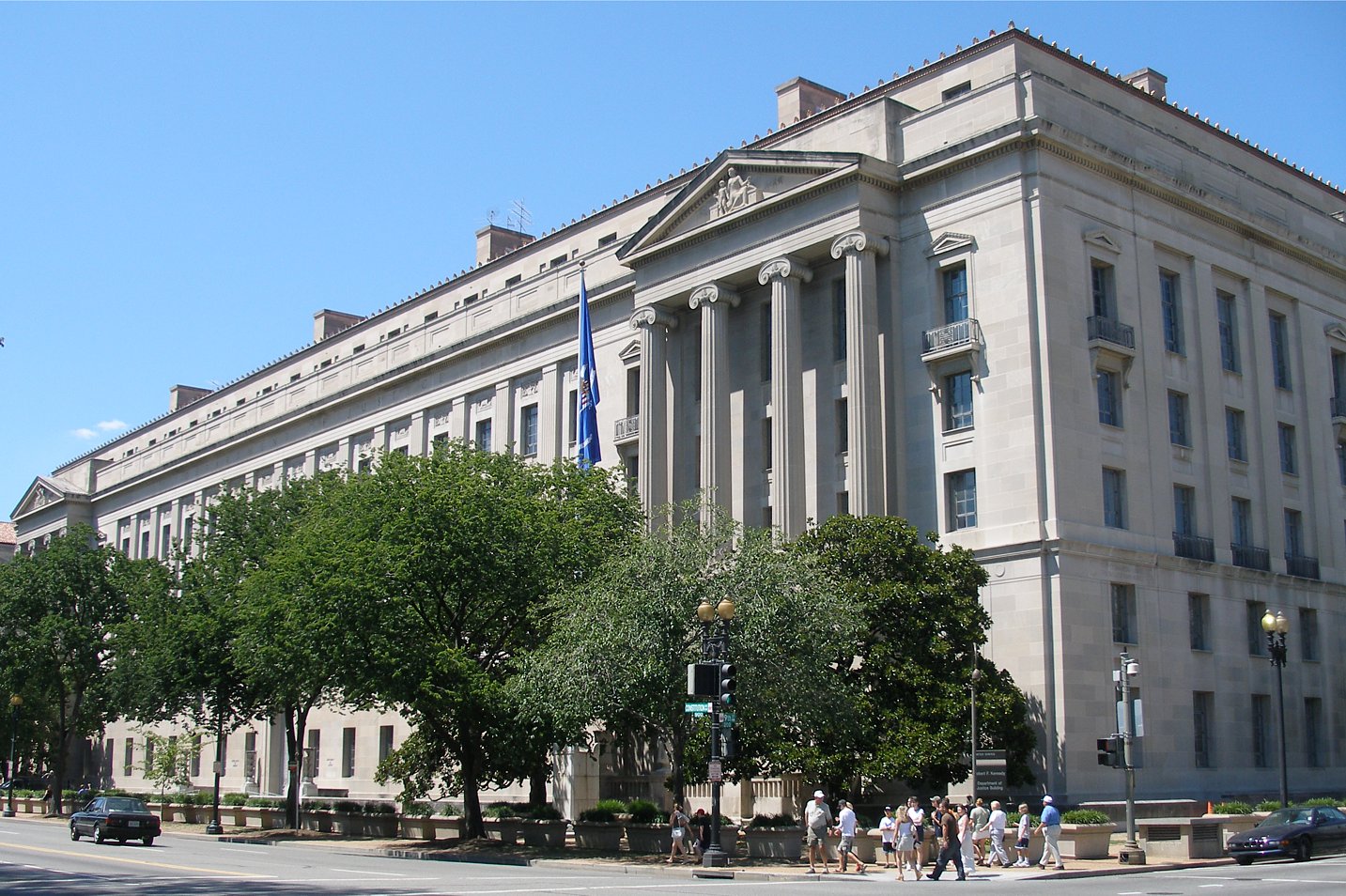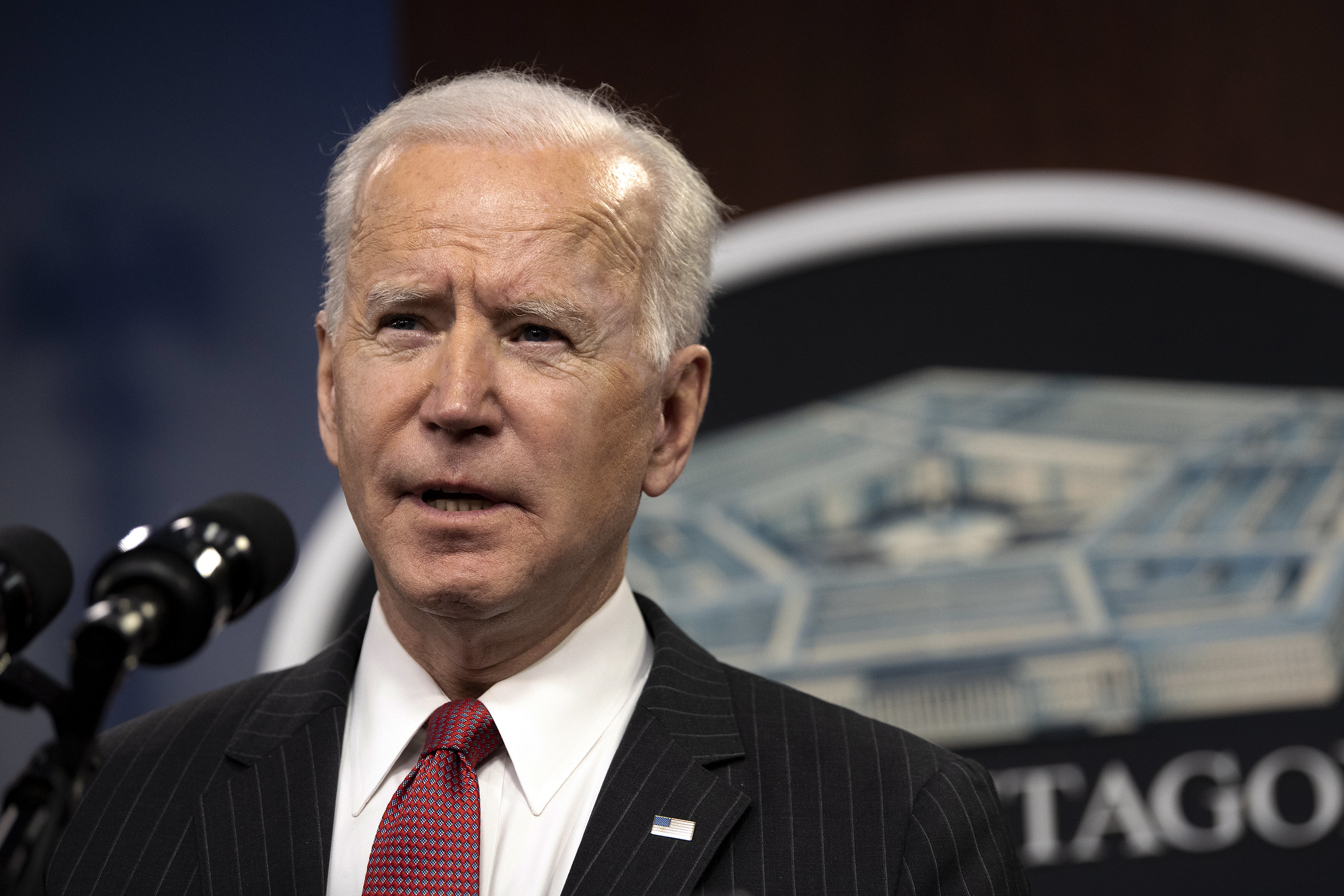The battle to prevent the corporate capture of the Biden administration has been going on since before the inauguration. As part of the Revolving Door Project’s ongoing mission to ensure that the federal government works in the public interest and not as an extension of corporate interests, RDP has been consistently involved in scrutinizing executive regulatory bodies. RDP’s work includes investigating nominees and appointees to important positions that enforce the nation’s antitrust laws and researching the capacity of those offices to fulfill their mandates. As progressive and grassroots groups push for White House officials free of ties to powerful industries such as Big Tech, Big Ag, Big Oil, and more, the pushback against monopolists is gaining momentum. With his administration, President Biden has the opportunity to use executive branch power to rein in monopolies by directing his officials to pursue anti-monopoly policy across all economic sectors. At RDP, we use our expertise and influence to contribute to the anti-monopoly movement.
The Revolving Door Project tracks the former antitrust enforcers who use the “revolving door” to switch between public service jobs and corporate gigs. Within antitrust regulators at both the leadership and staff level, there is a long history of these revolvers leveraging their federal experience to get new jobs at consulting companies and corporate BigLaw firms, just to turn around and use it to protect monopolists against the public interest they were once sworn to serve. Yet as we explained in Washington Monthly in 2020, most calls for change don’t include closing the revolving door between ostensibly “career staff” at the agencies and corporate entities. Perhaps the omission is tied to how respected officials and academics frequently and lucratively deploy their expertise at economic consulting firms that sell testimony to the government and merging parties alike. One high-profile example we have shone a light on is Fiona Scott Morton, a Yale professor, former chief economist at the Justice Department’s Antitrust Division (ATR), and consultant for Apple and Amazon. While her clear conflict of interest shocked onlookers, the many former government officials working for BigLaw and economic consulting firms suggest the problem is much larger than just one professor. On the whole, our research details how conflicts of interest at the Federal Trade Commission (FTC) and ATR are systemic obstacles to real anti-monopoly action.
To hold the sway of revolvers in check, the Revolving Door Project also provides public pushback against officials who kowtow to corporations’ interests. For instance, RDP has done substantial work criticizing Attorney General Merrick Garland’s interference in the operations of ATR, including pushing Big Tech-aligned lawyers such as Renata Hesse and Susan Davies to lead the DOJ’s Antitrust Division. Even after Jonathan Kanter was successfully appointed, Garland failed to provide Kanter with sufficient resources to enact an aggressive antitrust enforcement agenda. Meanwhile, Andrea Beaty and Eleanor Eagan discovered that Susan Davies had actually been running the Office of Legal Policy on an interim basis without that ever being disclosed to the public. Following persistent questioning, the DOJ finally publicly listed Davies on its website.
RDP also strives to contribute to the public discourse by publishing work that critically analyzes whether antitrust regulators have sufficient resources and staff to implement Biden’s priorities and by recognizing the importance of a “whole-of-government” approach to anti-monopoly efforts. As a critical part of our work promoting the importance of a whole-of-government approach to antitrust policy, RDP has analyzed the capacity of regulators to carry out the entirety of their mandates. We have done such analyses for the FTC and ATR, as well as an update on how President Biden’s spending proposals compare to recent histories of stagnant capacity.
The House Judiciary Subcommittee on Antitrust’s explosive 2020 hearing with the CEOs of Facebook, Apple, Google, and (for the first time) Amazon was an incredible example of Congress holding modern-day robber barons accountable. As the Revolving Door Project’s Eleanor Eagan wrote in The American Prospect, the hearing could be replicated for many other actors, like private equity, which similarly drive economic concentration. Nonetheless, in this context, the hearing drew out the antitrust enforcement agencies’ complicity in our current concentrated economy. As our Max Moran wrote in The New Republic, “throughout the hearing, the figures who really came off looking inept were the federal antitrust enforcement agencies—the Federal Trade Commission (FTC) and the Department of Justice (DOJ) antitrust division.”
This ineptitude might not surprise those of us who pay attention to who actually runs the agencies. As the Revolving Door Project continues to investigate, there is a crisis of incentives at the FTC and ATR, driven by the well-trodden path between government service and corporate boardrooms. We found that career-level officials leave the FTC for private law firms with alarming regularity, and the economists who advise the government on merger cases receive similar opportunities at economic consulting firms. Some officials just skip the middleman and become in-house economists or counsel at large corporations like Facebook and Amazon (in fact, as our Andrea Beaty wrote in Talking Points Memo, Big Tech poached many such officials in the run-up to the antitrust subcommittee hearing). That means former government officials end up working for firms on the other side of the courtroom from the antitrust enforcement agencies. They bring their insider knowledge of government tactics and strengths and weaknesses to their private employers and clients, who often try to avoid government oversight altogether.
Furthermore, the Revolving Door Project researches how corporate capture and conflicts of interest influence merger enforcement outcomes. The rampant use of consent agreements during the Obama and Trump administrations, which require the merging parties to divest specific assets, ultimately still allowed consolidation across entire industries. Such agreements are often riddled with conflicts of interest, such as a 2020 pharmaceutical mega-merger in which the merging companies were represented by former FTC officials in front of the FTC itself.
Some merger cases show their full effect well after the fact—take for example, the FTC-approved Covidien-Newport acquisition that forestalled the country’s planned stockpile of ventilators, a decision that had deadly consequences during the coronavirus pandemic. As Andrea Beaty wrote in The American Prospect in 2020, all five commissioners and the Bureau of Competition head at the time of the decision went on to work at private law firms after leaving the FTC. On the other side of the aisle, pharma giant Covidien’s counsel included a former FTC lawyer who also helped get approval for Google’s acquisition of DoubleClick. And these are the respected experts, the high-profile appointees—the antitrust experts that a future Biden administration might rely on to enact ostensibly progressive reforms.
In other words, there is no viable path to enduring and effective antitrust enforcement without reform to both the rules and norms around who enforces the law on behalf of the public. Reining in unfair competition by corporate America shouldn’t be a stint to turbocharge a private sector career but rather a long-term calling—a calling that should be accorded appropriate prestige and compensation. As current FTC Chair Lina Khan pursues a pro-worker and pro-consumer regulatory agenda of the sort the Revolving Door Project has long called for, she’s earned the ire of big businesses and their pro-monopoly allies. In response, RDP has shed light on the conflicts of interest underlying right-wing efforts to discredit Khan. For example, we revealed that Lorielle Pankey, the FTC ethics official who recommended Khan recuse herself from investigating Meta, owns up to $50,000 in Meta stock. Thanks in part to our revelations, a hearing where House Republicans planned to grill Khan for ignoring Pankey’s recommendation was transformed from an interrogation of Khan’s ethics into a vindication of her restoration of the FTC.
The FTC and ATR are not the only agencies that can work to dismantle monopoly power. Agencies like the Department of Agriculture (USDA), Department of Defense (DOD), Federal Communications Commission (FCC), and more also have cross-cutting responsibilities that can effectively reduce economic concentration. As our Hannah Story Brown detailed, the Federal Maritime Commission (FMC) is a woefully understaffed and underfunded entity, despite its outsized power in antitrust regulation. The FMC was caught flat-footed during the ongoing supply chain crisis, and is permeated by a culture of permissiveness, with its commissioners actively and publicly defending ocean carriers against the Biden administration’s crackdown amid record profits. RDP has also covered the role of regulators at the Federal Energy Regulatory Commission (FERC) in propping up utility monopolies. Our Dorothy Slater, for instance, revealed how Biden’s nominee to lead FERC, Willie Phillips, has an extensive history of genuflecting to corporate interests.
The Patent and Trademark Office, which we’ve covered here, is responsible for overseeing the granting of intellectual property, which effectively endows the rights-holders with state-backed monopoly power over their registered products. This is particularly fraught in the pharmaceutical industry, including the development of Covid medicines. This insidious form of serving monopolies at the expense of the public interest is something that RDP continuously covers. In particular, our Timi Iwayemi has advocated for open-source vaccine development to aid in the global fight against Covid.
The Small Business Administration (SBA), while not an antitrust regulator, plays a key role in bolstering small businesses. As our Miranda Litwak wrote for In These Times, the SBA was established by Congress to provide “opportunity for full participation in our free enterprise system by socially and economically disadvantaged persons…” And yet, business owners of color continue to endure significant disadvantages, and faced precarious situations due to the pandemic with little support from the SBA. Ensuring the survival of small businesses, particularly those owned by members of marginalized communities, is vital to dismantling monopoly power.
Since early 2022, the Revolving Door Project has been calling for a Corporate Crackdown—that is, a coordinated executive branch effort to crack down on corporate wrongdoing using regulations already on the books, picking visible fights with corporate villains who are extracting money from the masses and making the planet unlivable.
It should be the role of the government, and particularly public servants in the executive branch, to protect the public against corporate abuses—that is the responsibility they have been entrusted with in a democratic society.
Punishing corporate malfeasance is also good politics. People know that corporations and the wealthy are taking advantage of them without being held accountable. Our polling research, along with numerous recent polls by other outlets, shows that a majority of US voters across party lines support more corporate enforcement actions by the Biden administration, and believe corporations and the wealthy get away with wrongdoing too often.
Whether it’s Big Pharma lining their pockets by hiking prescription drug prices, corporate landlords raising rents in the midst of a housing crisis, or fossil fuel companies price-gouging at the fuel pump while polluting and driving climate catastrophes with impunity, the impacts of corporate wrongdoing are hitting us every day, in every aspect of our lives, and people are fed up. The FTC’s admirable campaign against junk fees is a terrific opening move in such a campaign—but it isn’t a complete campaign on its own.
The Biden administration must seize on this widespread anger and frustration by placing itself firmly on the side of workers and regular people, in clear opposition to the far too numerous bad actors among the corporate class.
Our polling has demonstrated broad, bipartisan belief that corporations and the wealthy get away with breaking the law unpunished, and high levels of support for cracking down on this wrongdoing. Our reports, including the Climate Corporate Crackdown report, outline what a whole-of-government approach to using existing regulations to interrupt corporate misdeeds would look like; and our regular newsletters and pieces in other outlets point out opportunities for the executive branch to curb corporate exploitation of the public.
Follow work in our Corporate Crackdown portfolio here.
Related Work
Our ongoing Industry Agenda series covers how monopolies and corporate interests seek to co-opt public policy to pad their profits.
Our BigLaw series tracks career staff and political appointees who revolve between government and corporate employers.
Also, see our work on Government Capacity issues, which intersects with effective regulation in anti-monopoly work and beyond.
Below you will find some of the project’s writing and research on anti-monopoly policy. For a selection of quotes and interviews on the topic, please visit this page.

July 25, 2024
HackwatchNewsletter 2024 ElectionAnti-MonopolyCorporate CrackdownHousingKamala HarrisMedia Accountability
Kamala Harris Must Ignore Corporate Landlord Apologists and Double Down On Protecting Tenants
President Biden’s proposal to cap rents brought the neoliberal hacks and Big Real Estate propagandists out of the woodwork, but that shouldn’t stop Harris from adopting—and expanding—upon what tenants desperately need.

July 23, 2024
A Window Opens
The past 48 hours have ushered in a historic shift in a presidential race with undeniable consequence for the world. The Democrats suddenly appear as if they will have a nominee capable of waging a vigorous campaign.
July 10, 2024 | Revolving Door Project Newsletter
RDP Work Roundup: 4th of July Edition
After a long 4th of July weekend, we figure this a good time to take a look back at the important work we’ve fired off over the last month or so. From analyses of Trump’s executive tenure to a take-down of a Big Oil myth pushed by compromised Democrats, here’s another edition of an RDP Work Roundup for you to digest along with your leftovers from holiday barbecues.

June 12, 2024 | Revolving Door Project Newsletter
Hannah Story Brown Andrea Beaty
Anti-MonopolyClimate and EnvironmentEthics in GovernmentExecutive Branch
Utilities Doubling Down On Fossil Fuels? That’s A Junk Fee!
In late May, Brian Deese, the former director of President Biden’s National Economic Council and current MIT fellow, wrote about “The Next Front in the War Against Climate Change” for The Atlantic. Deese explained that while the Inflation Reduction Act’s incentives have stimulated clean energy demand “beyond my wildest hopes,” he still finds himself “lying awake at night, worried that America could still fail to meet its climate goals.”

May 28, 2024
Letter to Deputy Attorney General Lisa Monaco on Off-the-Record Meeting with Senior Tech Execs
On May 28th 2024, the Revolving Door Project sent a letter to the office of Deputy Attorney General Lisa Monaco expressing concern over her recently reported off-the-record meeting with senior tech company executives. The Revolving Door Project called on DAG Monaco to publicly disclose who she met with, what was discussed, and permanently discontinue holding private meetings that may sow public distrust of the Department of Justice.
May 22, 2024
RDP Work Round-Up: Memorial Day Edition
As we head into Memorial Day Weekend, we’re taking some time to review recent work at Revolving Door Project—boosting pieces we want to make sure readers here see, and staying focused on priority areas for our team. Here’s hoping the extra time in your week gives you some space to go down a revolving rabbit hole (or two) with us, whether on the crypto industry’s continuing efforts to influence how they’re regulated, or on Scott Sheffield, the former fossil fuel CEO engaged in an oil price-fixing scheme.
May 15, 2024 | Revolving Door Project Newsletter
Pioneer’s Price Fixing Scandal Is Yet Another Reason We Need To Fully Fund Antitrust Enforcers
Major corporate scandals make the consequences of Republican-led budget cuts at antitrust enforcement agencies even clearer. Crucially, they serve as reminders that the federal government’s ability to combat the ill effects of monopolization rises and falls in direct proportion to funding, even when motivated and creative leadership are at the helm.

May 13, 2024
RELEASE: Biden Inexplicably Failing to Vilify GOP Mega-Donor Who Colluded With OPEC to Raise Gas Prices
Jeffrey Zients and Anita Dunn must start behaving like competent political operatives and lead the Biden Administration to condemn Scott Sheffield daily.

May 10, 2024
Biden Can Run & Win on Big Oil GOP Donors Colluding to Raise Gas Prices
The FTC’s revelation of an oil price-fixing scheme by GOP donors and foreign powers places blame for economic pain where it belongs: on the profit-maximizing fossil fuel industry.
April 24, 2024 | Revolving Door Project Newsletter
National Small Business Week 2024
This Sunday marks the start of National Small Business Week (NSBW). Hosted by the Small Business Administration (SBA), NSBW is an opportunity to celebrate the contributions that small businesses make to both the economy and our communities. It also allows Biden and his surrogates to go on a press tour touting his achievements in helping small businesses compete in an economy increasingly characterized by corporate consolidation.
Yet, once again, the Small Business Administration is squandering the potential of its signature event by partnering with the very same monopolistic corporations that Biden’s antitrust enforcers are fighting in the courts.

April 16, 2024
Blog Post Anti-MonopolyCongressional OversightConsumer ProtectionDepartment of JusticeFTCHousingRevolving Door
Meet RealPage’s Revolving-Door Lobbyists
The scandal-plagued software company has hired a trio of Capitol Hill insiders to fend off regulatory scrutiny from Congress.

April 16, 2024
New Report: Congressional Appropriators & Big Tech
Today the Revolving Door Project and Fight For The Future released Congressional Appropriators & Big Tech, a special report detailing financial ties, revolving door moves, and other conflicts of interest between congressional appropriators (and their staff) and monopolistic companies like the Big Tech giants.

March 21, 2024
RealPage Enlists Ex-FTC Revolvers From BigLaw Firm Gibson Dunn To Fight Tenant Lawsuits
Facing an existential legal threat, the scandal-plagued software company has hired price-fixing monopolists’ favorite lawyers.

March 18, 2024
RELEASE: Virginia General Assembly Must Investigate Leonard Leo’s Influence On State’s Largest Public Research University
Today, the Revolving Door Project, Take Back the Court Action Fund, People’s Parity Project, Freedom BLOC and the George Mason University chapter of the American Association of University Professors sent a letter to members of the Virginia General Assembly calling on them to investigate Leonard Leo in regard to his undue influence on George Mason University. The groups called on the state legislature to investigate what Leo-tied activities are taking place under the aegis of a state school.
